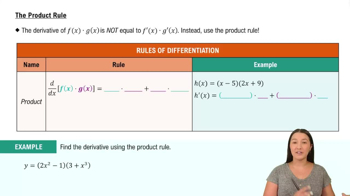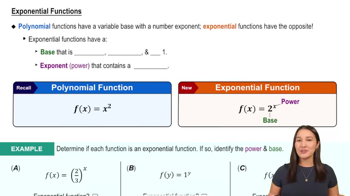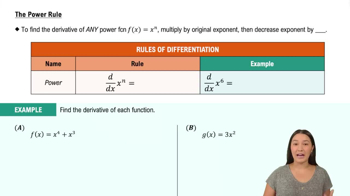Slopes and Tangent Lines
In Exercises 13–16, differentiate the functions and find the slope of the tangent line at the given value of the independent variable.
f(x) = x + 9/x, x = −3
 Verified step by step guidance
Verified step by step guidance Verified video answer for a similar problem:
Verified video answer for a similar problem:

